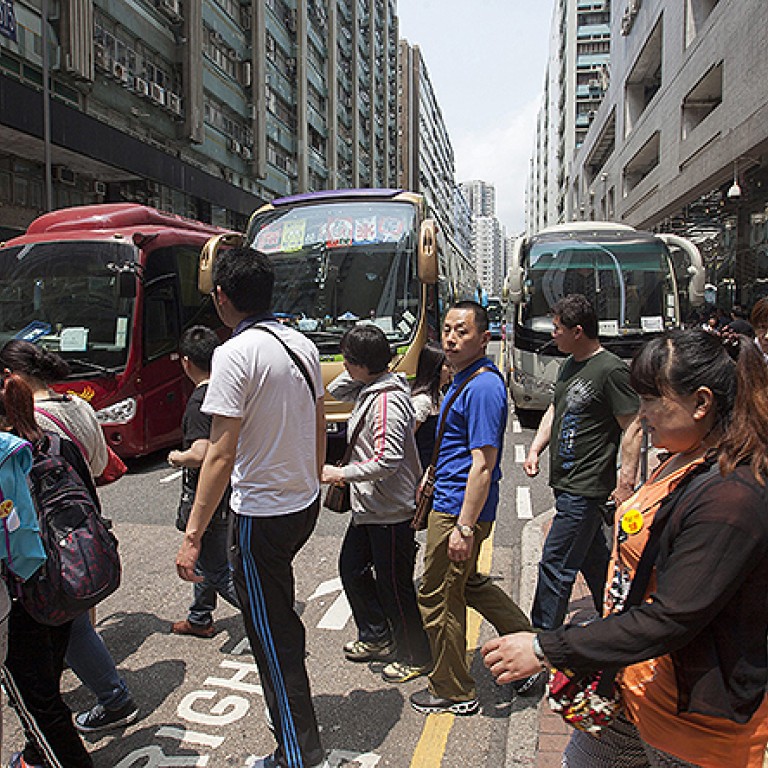
Protect Hong Kong tourism from the stigma of bad manners
Kelly Yang's mainland holiday convinced her of the need to keep tourism in HK civilised - and that means no peeing in public, for a start
When the story of a mainland toddler urinating in a Hong Kong street went viral online, I was on a flight back to the city from a holiday in Hainan.
My first reaction was relief; it was a pleasant reminder that I was heading home. In other parts of China, a toddler urinating in the street is nothing; here, it's front-page news.
I read with great interest the many facets of the story - the young mother wandering the busy streets of Mong Kok and her crying two-year-old shrieking that he might burst. All this culminated in his mother's decision to let him drop his trousers on the street.
As he peed, a Hong Kong crowd gathered, who alternatively filmed and gasped. It was like a scene in a movie. Except that it was reality, and it had been my reality, too, for my holiday on the mainland.
While I did not see any children pee in the street on my trip, I saw plenty of children - and adults - peeing in the pool
While I did not see any children pee in the street on my trip, I saw plenty of children - and adults - peeing in the pool. In fact, I felt them pee. I was sitting beside them in the pool and I felt a warm gush of liquid ripple my way.
One man, who had had too much to drink the night before, took it up a notch and threw up in the pool. Another used the pool as an ashtray, happily tossing his cigarettes in the water.
At breakfast the next day, a man carrying a plateful of food from the buffet came over and plopped himself down at our table. "Excuse me, sir, what are you doing?" I asked him. "I'm eating," he said, his mouth full of dried apricots.
"I know, but why are you eating here?"
"What do you mean?" he asked me. He looked genuinely confused. I pointed to a free table just next to us. "Look, there's a free table right there!"
He shook his head and turned his attention back to his plate. I thought about giving up. I was on vacation and didn't want to argue. But it was a very small table and not including this man in conversation seemed impossible. So I tried again.
"Excuse me, sir, but it would really mean a lot to me if you sat somewhere else," I said. "I mean, I'd move myself but we have five people and all this food. And you're just one person."
He glanced at the nearby table and then at me.
"But why? What's your problem? Why can't I sit here? Why can't we just sit together!"
"Because! We're not part of the same family! That's why!" I practically shrieked in Putonghua.
Sulking, he took his pyramid of food and with one last, lingering look at our table, got up and left.
Years of travelling to China have made me accept comical situations like this one. They've become a part of the China experience. You know when you book that flight to Beijing or Shanghai that you're going to see a spitting hawker or two.
Yet, a holiday in Hong Kong is not supposed to be filled with such inappropriate moments. We pride ourselves on our clean streets, orderly conduct, and ample rubbish bins, street lights and toilets.
And herein lies the real reason why we're so angry over the urinating toddler. We like tourism. We want to protect it. We don't want urinating toddlers to get woven into the fabric of Hong Kong tourism.

